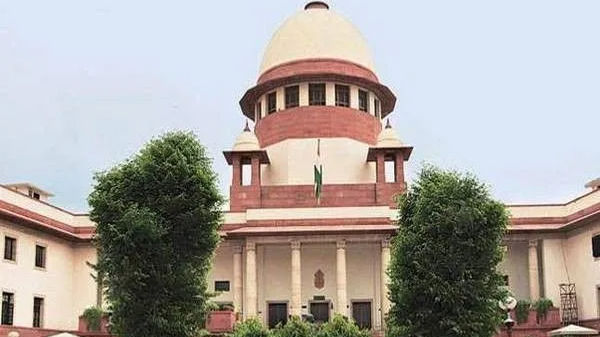The Supreme Court on Thursday questioned the validity of India’s Sedition law and asked whether it was necessary to keep “this in statute even after 75 years of independence?” Rights lawyer Vrinda Grover, quoting official figures, said the conviction rate in 2019 was just 3% as only one of the 30 cases filed ended in conviction.
Also read: All about India’s sedition law
Sending out a strong message to lawmakers, the three-judge bench observed that provision had been put to enormous misuse. “It can be compared to a carpenter, asked to cut a wood, cut the entire forest,” it said.
What the sedition law says:
The non-bailable provision makes any speech or expression that brings or attempts to bring into hatred or contempt or excites or attempts to excite disaffection towards the Government established by law in India a criminal offence punishable with a maximum sentence of life imprisonment.
The bench hearing the case comprises Justices KV Ramanna, AS Bopanna and Hrishikesh Roy.
Also read: All you need to know about the government-Twitter spat
Here’s what happened in the court on Thursday and who said what:
What rights lawyer Vrinda Grover said:
*There has been a consistent rise in the number of sedition cases being filed and between 2016 and 2019, there has been a 160 % increase in the number of cases filed for sedition.
* In 2019, 30 cases of sedition were decided, with 29 acquittals and one conviction, and the rate of conviction is abysmal, being 3.3 %, she said quoting NCRB figures.
What the bench said:
*Mr Attorney (General), we want to ask some questions. This is the colonial era law and the same law was used by the British to suppress freedom movement. It was used by British to silence Mahatma Gandhi, Gokhale and others. Is it still necessary to keep this in statute even after 75 years of independence?
*The provision on sedition has been put to enormous misuse…It can be compared to a carpenter, asked to cut a wood, cut the entire forest, reports PTI.
*A factionist can invoke these types of (penal) provisions to implicate the other group of people… if a particular party or people do not want to hear a voice, they will use this law to implicate others.
*We do not know why the government is not taking a decision. Your government has been getting rid of stale laws
* We are not blaming any state or government, but unfortunately, the executing agency misuses these laws and there is no accountability







